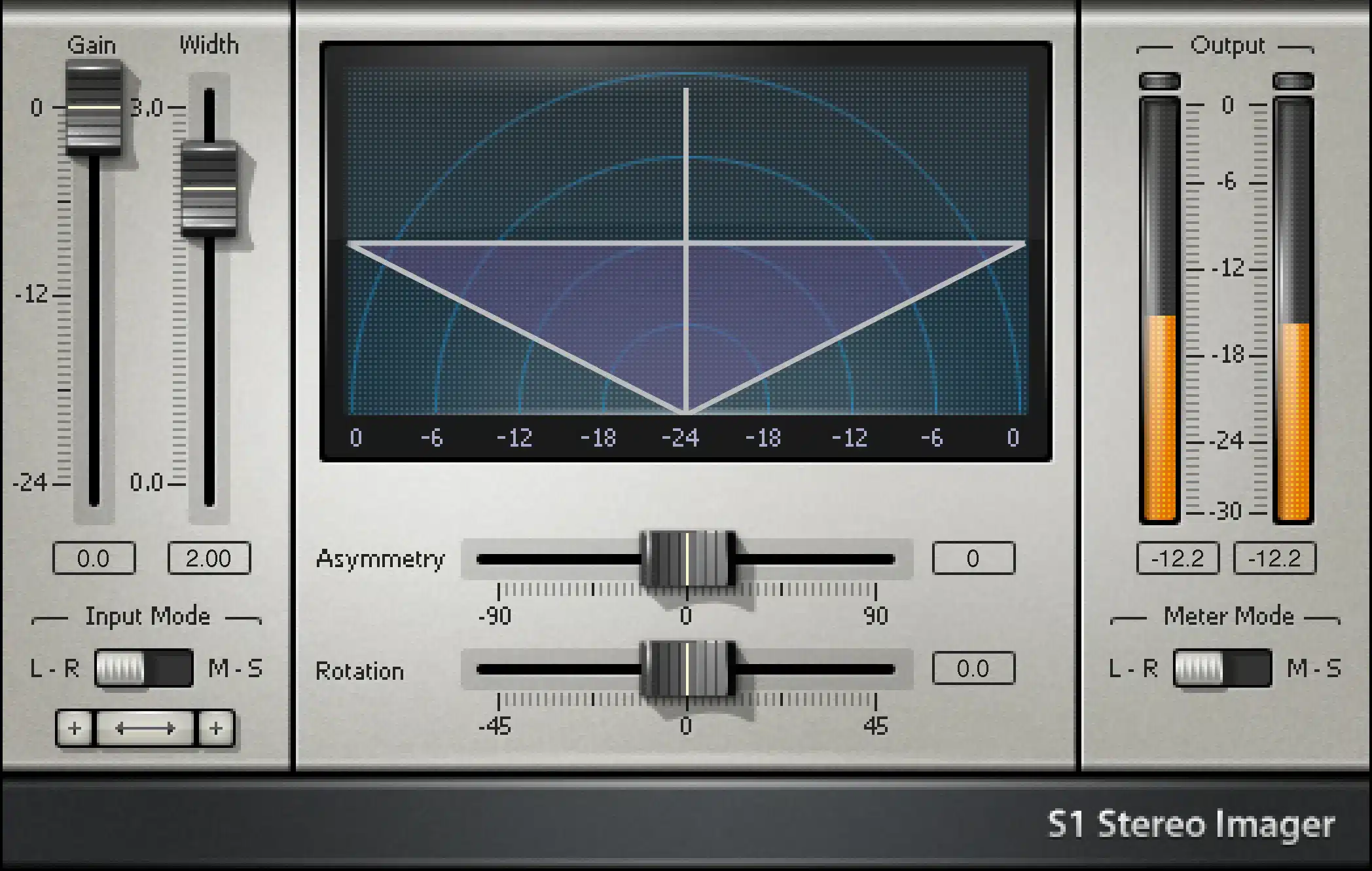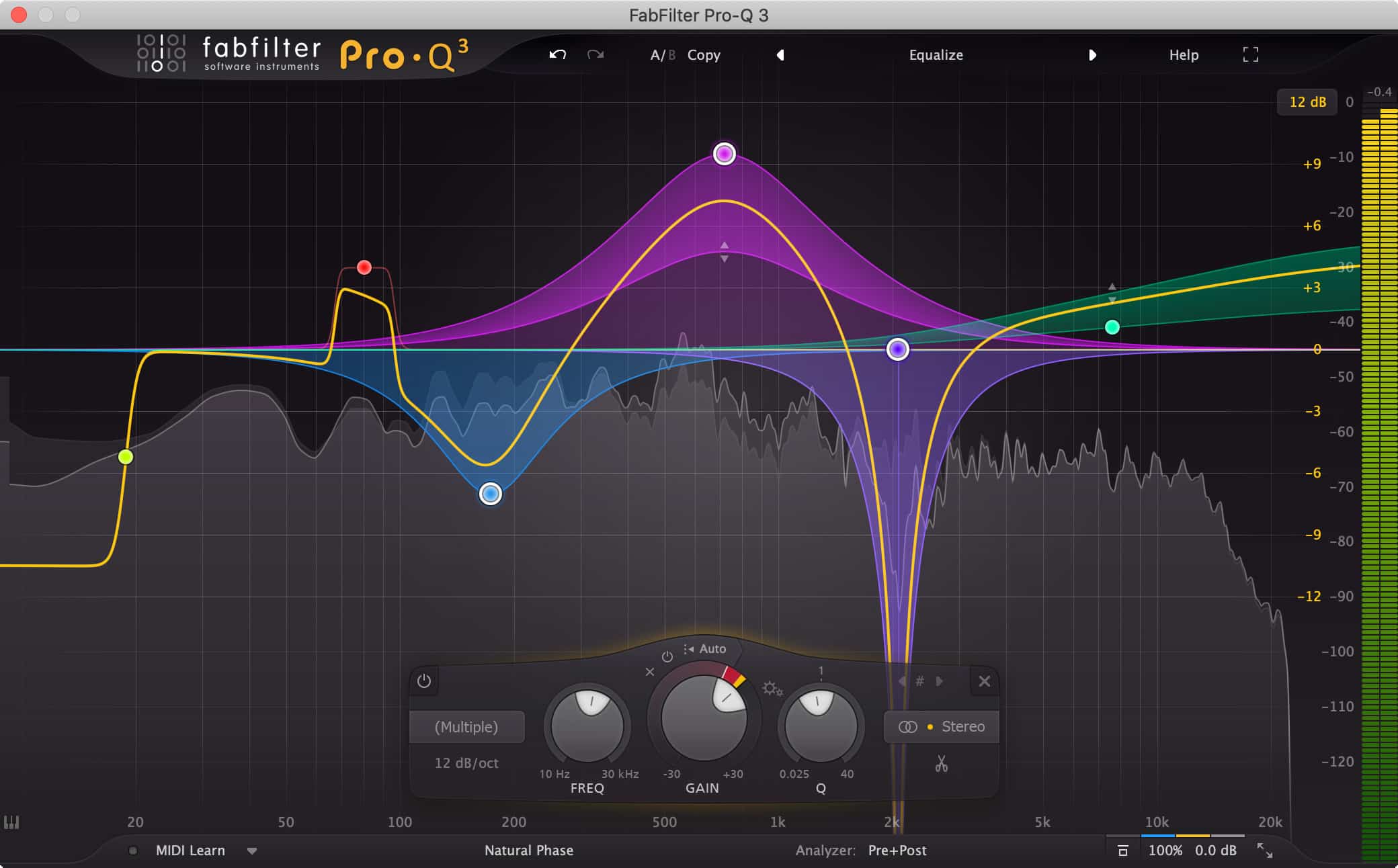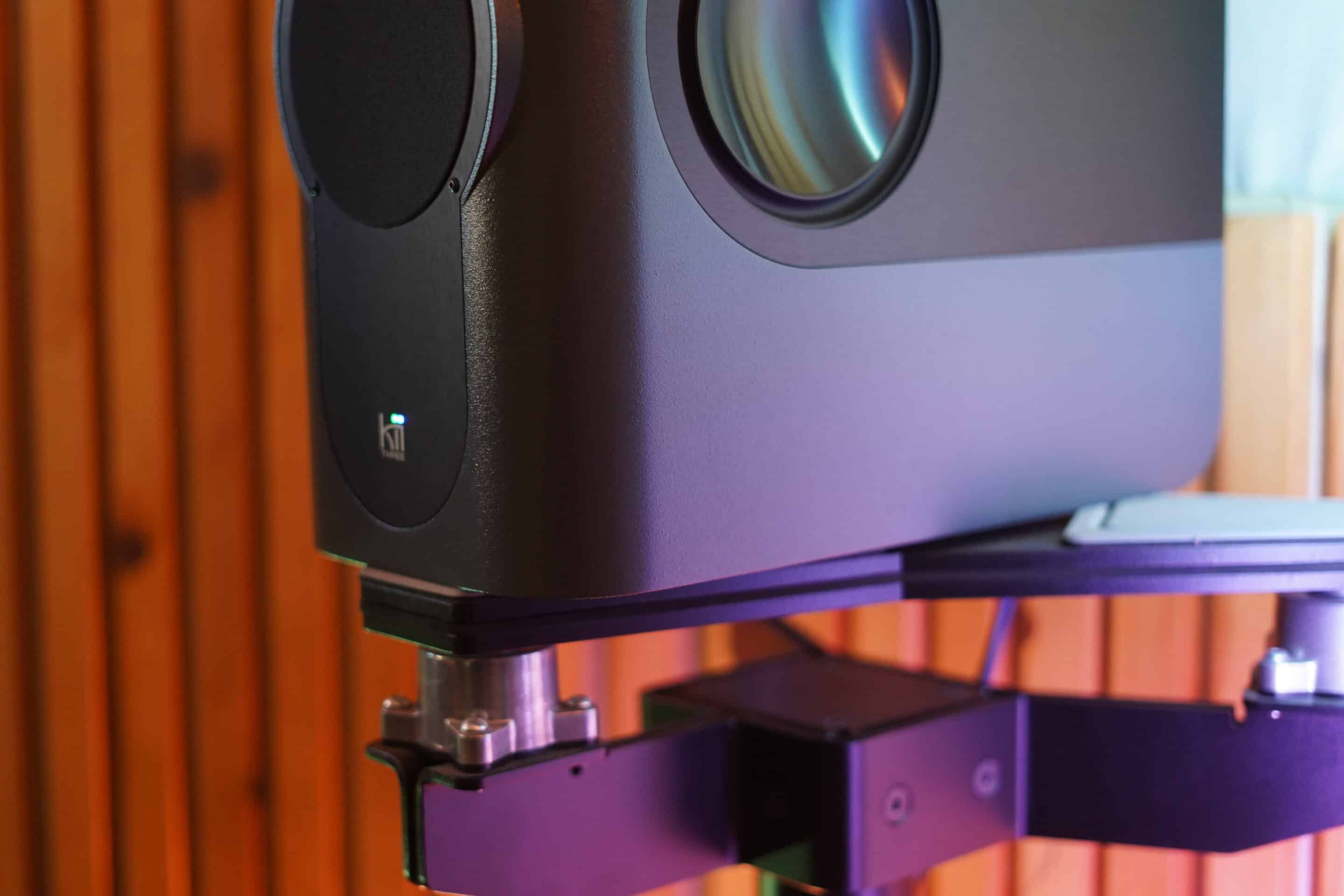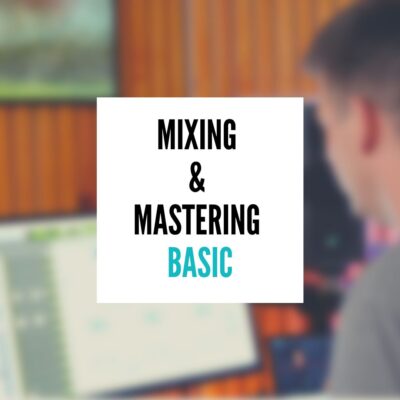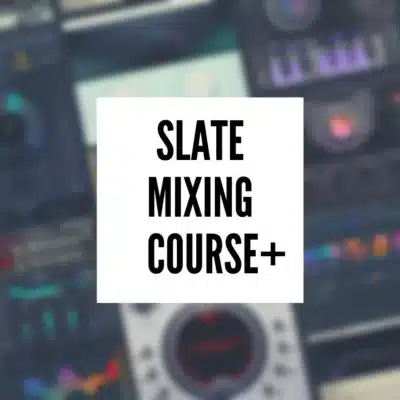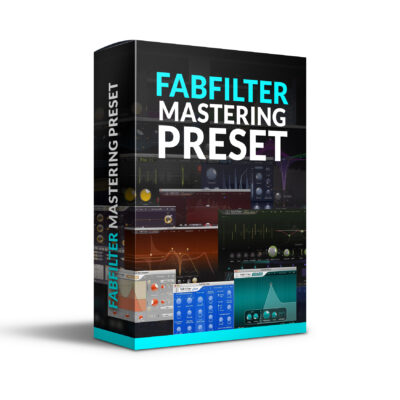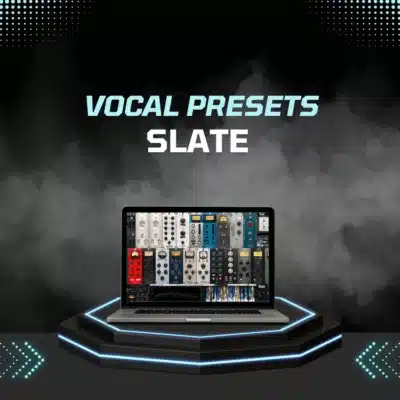Is AI Mixing and Mastering Possible?
In times, there has been a shift towards digitization and automation in the field of music production. An exciting development in this area is the application of intelligence (AI) for mixing and mastering music. This technology has the potential to transform the methods of music production, challenging established approaches and introducing opportunities.
For those who may not be familiar with these terms, mixing refers to the process of blending audio tracks into a final stereo track. On the other hand, mastering is the stage after production, where the final mix is refined and optimized for distribution. AI-based mixing and mastering involve utilizing algorithms and machine learning to analyze and manipulate files, resulting in a polished and professional sound.
How does AI Mixing and Mastering work?
AI Mixing and Mastering works through the use of machine learning algorithms that are trained on large datasets of audio tracks. These algorithms possess the ability to analyze files, distinguish and separate different components of a track, and apply a range of effects and modifications to elevate the overall sound quality.
Additionally, these AI algorithms can learn from the input provided by human audio engineers, constantly enhancing their performance. This iterative process, known as ” learning,” empowers the AI to refine its techniques according to the specific preferences and artistic style of each producer or musician.
What are the benefits of AI Mixing and Mastering?
AI Mixing and Mastering brings several benefits to the music production process, including:
- Improved efficiency and speed – AI can automate certain tasks and reduce the time required to produce high-quality tracks.
- Consistency – AI algorithms can apply consistent improvements to tracks, ensuring a uniform sound quality throughout the entire album.
- Enhanced creativity -By automating certain tasks, artists, producers and engineers can spend more time on the creative aspects of music production.
- Improved sound quality – AI algorithms can correct errors, enhance audio quality, and make tracks sound more polished and professional.
What are some examples of AI Mixing and Mastering tools?
Some popular AI Mixing and Mastering tools include:
| Tool | Features |
|---|---|
| LANDR | Automated mastering, adaptive AI algorithms, cloud-based service. |
| MasteringBOX | Instant mastering, audio analysis, custom mastering. |
| Oeksound Soothe | Dynamic frequency processing, self-adjusting, spectral processing. |
What are the limitations of AI Mixing and Mastering?
Despite the numerous benefits, AI Mixing and Mastering also has its limitations. AI algorithms rely on large datasets of audio tracks and may not be suitable for producing unique or experimental sounds that do not fit within the conventional norms of music production. Additionally, AI may not be able to replicate the creativity and spontaneity of the human touch.
How is AI Mixing and Mastering integrated with human expertise?
The most effective way to integrate AI Mixing and Mastering with human expertise is to use AI as a tool to enhance the creativity and efficiency of producers and musicians. By automating certain tasks, AI can free up more time for creative experimentation, while human expertise can bring the artistic vision and emotional depth that AI algorithms may lack. A balance between AI automation and human expertise is key to producing high-quality tracks that combine the best of both worlds.
Benefits of AI Mixing and Mastering
Artificial intelligence has the potential to transform the music production process. AI mixing and mastering offers numerous benefits over traditional techniques, making it a popular choice among musicians and producers alike.
Improved Efficiency
Using AI for mixing and mastering can significantly reduce the amount of time and effort required to produce high-quality tracks. With AI techniques, producers can quickly and automatically identify and correct issues such as volume imbalances, frequency masking, and phase problems. This allows them to focus more on the creative aspects of music production and less on tedious technical tasks.
Consistent Sound Quality
One of the most significant advantages of AI mixing and mastering is the ability to achieve consistent sound quality across multiple tracks. AI algorithms can analyze dozens of reference tracks and use that information to recreate the same mix and master settings for a new track. This means that producers can ensure a consistent sound across entire albums or even entire discographies.
Enhanced Sound Quality
AI algorithms can detect and correct issues in the mix and master stages that human ears may not be able to hear. This can result in a cleaner, more polished sound that is free from artifacts such as clicks, pops, and distortion. Additionally, AI techniques can be used to enhance certain aspects of a track, such as adding warmth to vocals or improving the clarity of a guitar solo.
Increased Accessibility
AI mixing and mastering techniques are also making producing music more accessible to a wider audience. With user-friendly AI mixing and mastering tools, even amateur producers can achieve professional-quality results without needing extensive technical knowledge. This democratizes the music production process, allowing more people to create high-quality music.
Cost-effective
AI mixing and mastering offers a cost-effective alternative to traditional methods. With AI techniques, producers can achieve high-quality results without needing to hire expensive audio engineers or mastering technicians. This makes music production more affordable for independent artists, who can now produce a professional-sounding track on a limited budget.
AI Mixing and Mastering Tools
Artificial intelligence has made progress in revolutionizing the music production process, enabling improved productivity and superior audio excellence. In this segment, we will delve into a selection of acclaimed AI tools for mixing and mastering that are currently available in the market.
1. Master Assistant by iZotope
The Master Assistant by iZotope is a powerful AI tool that analyzes your music tracks and provides customized suggestions for achieving a professional-quality mix. It offers a range of tools for EQ, compression, and other effects and allows for easy integration with your favorite DAW.
2. LANDR
LANDR is an AI-powered mastering service that offers instant online mastering for your music tracks. It uses machine learning algorithms to analyze your audio and create a polished, radio-ready sound. It also offers a variety of mastering styles to choose from, depending on your preferences.
3. Ozone by iZotope
Ozone by iZotope is another popular AI tool that offers a range of mastering features, including EQ, compression, and limiting. Its AI-powered Master Assistant provides personalized suggestions for achieving your desired sound, while its intuitive interface makes it easy to use.
4. Sonible Smart Compressor 2
This innovative tool analyzes incoming audio in real-time, automatically adjusting compression parameters such as threshold, ratio, attack, and release times to dynamically control the audio’s dynamics.
5. AAMS Auto Audio Mastering System
AAMS Auto Audio Mastering System is an AI tool that automates the entire mastering process. It uses a database of over 2000 reference tracks to analyze your music and create a balanced, professional-quality mix. It also allows for manual adjustments and customization to suit your preferences.
“These AI mixing and mastering tools have revolutionized the way I create music. They allow me to achieve a polished, professional sound without spending hours tweaking every little detail.” – John, Music Producer
Overall, AI mixing and mastering tools offer numerous benefits, including time-saving, efficiency, and enhanced sound quality. However, it is important to strike a balance between AI automation and human expertise to ensure creative vision and artistic expression are not lost in the process.
Limitations of AI Mixing and Mastering
While AI mixing and mastering has numerous benefits, it also has its limitations that must be considered. One of the biggest challenges is the lack of creativity and artistic vision that AI brings to the table.
AI algorithms are designed to analyze and process data, but they lack the human touch that distinguishes great music from mediocre. AI-based mixes can sound technically impressive, but they may lack the unique emotional appeal that only a skilled human producer can bring to a track.
Another limitation is the risk of over-reliance on AI automation. It is easy to fall into the trap of relying solely on AI-based tools and neglecting the importance of human expertise. This can lead to a standardized and formulaic approach to music production, which can stifle creativity and originality.
Lastly, AI mixing and mastering tools may not be suitable for all genres of music. Different genres have their unique characteristics and sound signatures, and it can be challenging to develop AI algorithms that can effectively capture the nuances of each genre.
“The use of AI in music production is still in its infancy, and we must approach it with caution and a critical eye. While AI can bring significant benefits to the music production process, it is important not to rely solely on automation and to maintain a balance between technology and human creativity.”
The Future of AI Mixing and Mastering
As AI technology continues to advance, we can expect to see even greater and more innovative applications of AI in the music production process. Here are some potential future trends in the field of AI mixing and mastering:
Personalized Music Production
With the help of AI, music production can become personalized and customized according to the preferences of the listener. By analyzing the user’s listening habits, AI can create music tailored to their tastes, incorporating elements of their favorite songs and genres.
Real-Time Performance Enhancement
AI could potentially be used to enhance live performances by adjusting sound levels and acoustics in real-time, ensuring optimal sound quality for the audience.
Collaborative Music Production
AI can facilitate remote collaborations between artists and producers, regardless of their physical location. This could lead to a more diverse and global music industry, with artists from all over the world coming together to create music.
Improved Sound Quality
As AI technology improves, we can expect to see even greater enhancements in sound quality. AI algorithms can analyze and adjust multiple aspects of a track, including volume, frequency balance, and dynamics, resulting in a cleaner and more professional sound.
Integration with Virtual Reality
Virtual reality technology can potentially be integrated with AI mixing and mastering to create immersive musical experiences for listeners. Imagine being able to step inside a virtual concert venue and experiencing music as if you were there in person.
While these potential trends are exciting, it is important to remember that the human touch and creative vision are still essential to the music production process. By combining the capabilities of AI with human expertise, we can create truly innovative and groundbreaking music.
Integrating AI with Human Expertise
While AI can offer significant benefits in the music production process, it is crucial to remember the value of human expertise in the field. The creative process is often an unpredictable and emotionally charged journey that requires artistic vision and interpretation.
AI, on the other hand, operates on a set of established rules and algorithms that can only take the process so far. It is not capable of making creative decisions or understanding the nuanced emotions and intentions of the artist.
Therefore, it is essential to strike a balance between the efficiencies of AI automation and the human touch of creativity. By combining the strengths of AI with the insights and artistic vision of human experts, we can achieve unprecedented heights in music production.
Take, for example, the success story of acclaimed producer Greg Wells. Wells is known for integrating cutting-edge AI technology with his own musical talents to create chart-topping hits. He believes that AI can significantly enhance the technical aspects of music production, but at the end of the day, it is the artist’s unique perspective that makes all the difference.
“The computer is a tool, and the producer is the artist. The producer decides what the computer should do, and how. What the computer does is almost irrelevant. It’s how you use it and how it serves your creative vision that matters.”
In conclusion, while AI can certainly revolutionize the music production process, it is important not to overlook the value of human expertise. By embracing the strengths of both AI and human creativity, we can unlock the full potential of music production in the digital age.
Success Stories of AI Mixing and Mastering
Artificial intelligence has already made an impact in the music industry, with many musicians and producers experiencing success by incorporating AI mixing and mastering techniques into their workflow. Let’s take a look at some notable examples:
| Artist/Producer | Project | AI Tool Used | Results |
|---|---|---|---|
| The Flaming Lips | The Soft Bulletin: Live at Red Rocks | LANDR | The AI tool was used to master the live recording of the album, resulting in a polished and cohesive sound. |
| Taryn Southern | I AM AI | Amper Music | The AI tool was used to compose music for the album, which debuted at #8 on the Billboard Electronic Album Sales chart. |
| Starcadian | Saturdaze | LANDR | The AI tool was used to master the album, resulting in a high-quality and professional sound. |
“AI is no longer a novelty, it’s a necessity.”
These success stories highlight the potential of AI mixing and mastering to enhance the overall quality of music tracks. By utilizing AI tools, musicians and producers can save time and improve efficiency, allowing them to focus on the creative aspects of music production.
However, it is important to note that AI is not a replacement for human expertise. While AI can improve the technical aspects of music production, it cannot replace the creative vision and artistic sensibilities of a skilled producer.
As the music industry continues to evolve, it is clear that AI will play an increasingly important role in the music production process. By integrating AI with human expertise, musicians and producers can unlock new levels of creativity and innovation.
Conclusion
In conclusion, AI mixing and mastering technologies have the potential to revolutionize the music production process. As we have discussed throughout this article, AI can save time, improve efficiency, enhance sound quality, and offer new creative possibilities to musicians and producers.
As AI continues to advance, we can expect to see new and exciting trends emerge in the music production industry. Whether you are a musician, producer or music enthusiast, we encourage you to explore the possibilities of AI mixing and mastering in your own creative process.
Thank you for reading this article. We hope you found it informative and insightful. If you would like a human to mix and master your music, please reach out to discuss our mixing and mastering services.
FAQ
Can AI mix and master music?
Yes, artificial intelligence has the capability to effectively mix and master music. AI technologies can analyze audio tracks, apply various effects and adjustments, and enhance the overall sound quality.
What is AI mixing and mastering?
AI mixing and mastering refers to the use of artificial intelligence technologies in the process of adjusting, equalizing, and enhancing the sound quality of music tracks. These AI tools can automate certain aspects of the mixing and mastering process, saving time and improving efficiency.
What are the benefits of AI mixing and mastering?
AI mixing and mastering offers several advantages. It can save time by automating certain tasks, improve efficiency by providing quick and accurate adjustments, and enhance the overall sound quality of tracks by applying intelligent audio processing techniques.
What are some popular AI mixing and mastering tools?
Some popular AI mixing and mastering tools include LANDR, iZotope Ozone, and Waves Abbey Road Studio 3. These tools offer various features and functionality to enhance the quality of music tracks and integrate seamlessly into music production workflows.
What are the limitations of AI mixing and mastering?
While AI mixing and mastering brings numerous benefits, it also has its limitations. AI tools may struggle with subjective artistic decisions and may not fully replace human expertise and creativity. Additionally, complex or unconventional music styles may present challenges for AI algorithms.
What is the future of AI mixing and mastering?
The future of AI mixing and mastering looks promising. With advancements in AI technology, we can expect more sophisticated algorithms and tools that can offer even better audio processing capabilities. AI is likely to continue shaping the music production industry and introducing new possibilities.
How can AI be integrated with human expertise?
It is important to strike a balance between AI automation and human expertise. While AI can handle technical aspects and provide efficiency, human creativity and artistic vision are still invaluable in music production. Integrating AI tools with human expertise can result in the best outcomes.
Are there any success stories of AI mixing and mastering?
Yes, there are numerous success stories of musicians and producers who have utilized AI mixing and mastering techniques. These techniques have helped artists elevate their music and achieve professional-quality results. Examples include Grammy-nominated albums and chart-topping hits.


